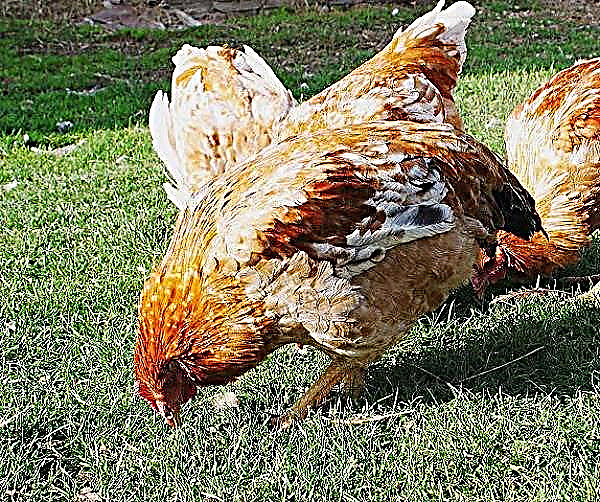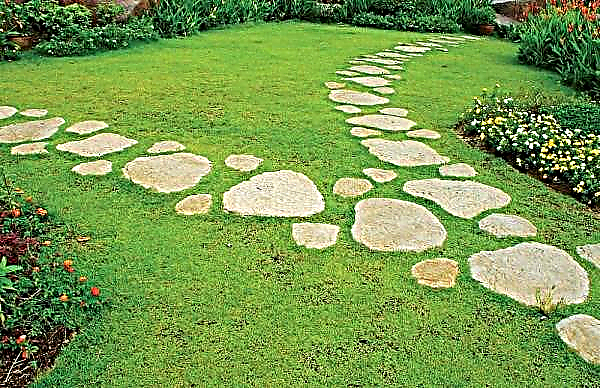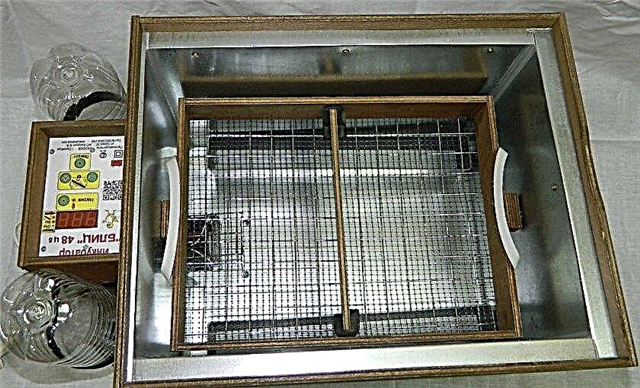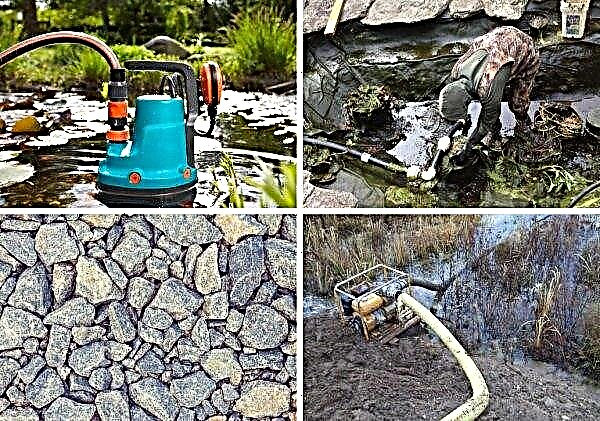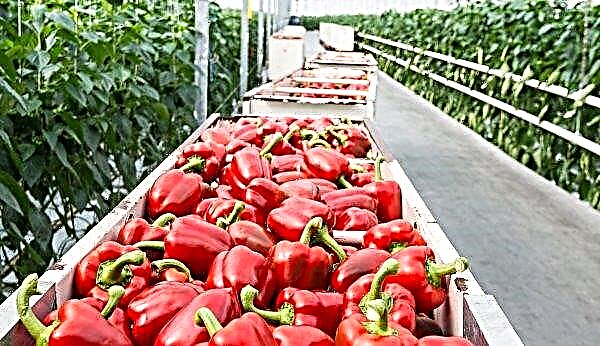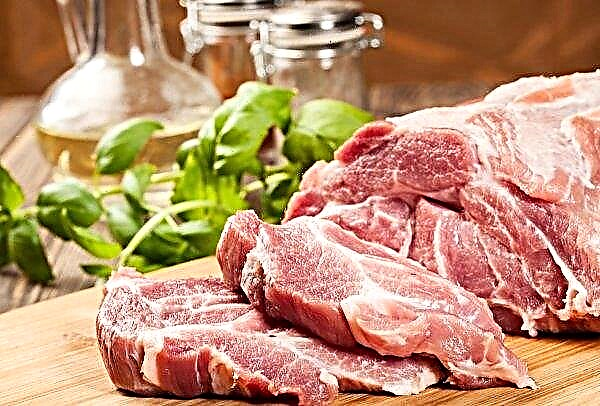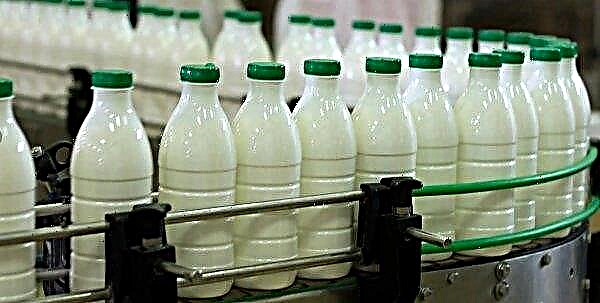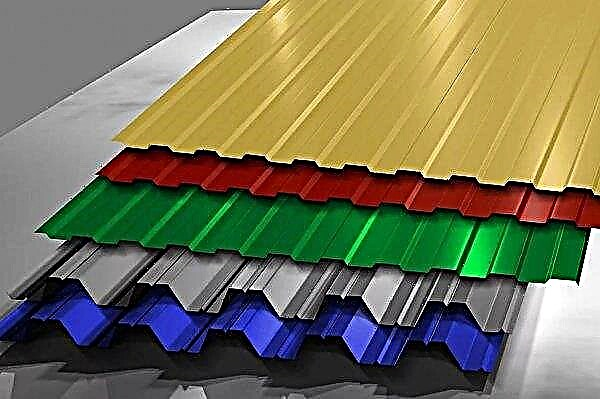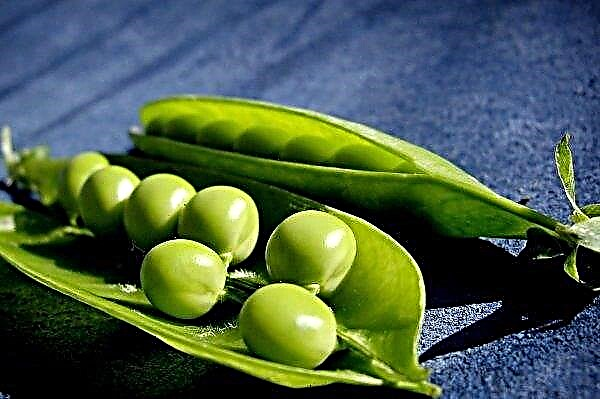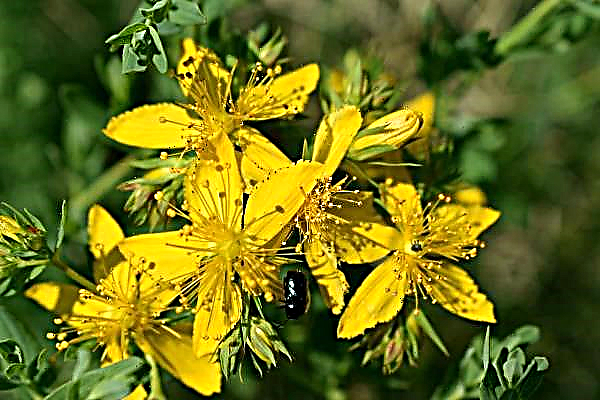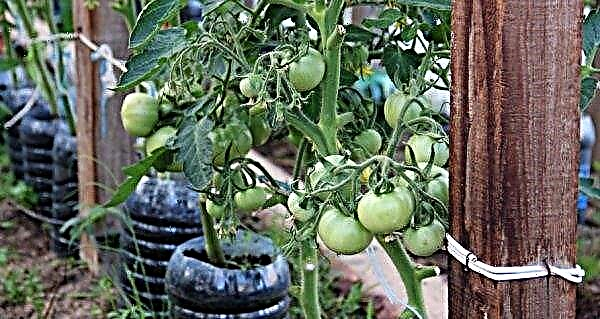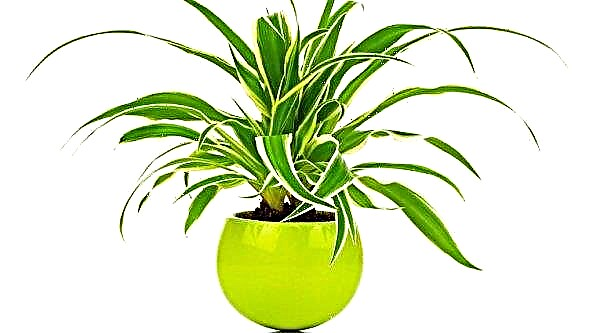It is very disappointing when diseases occur with poultry, because its maintenance is a very troublesome and responsible matter. Among the most common ailments of chickens and chickens are foot diseases. Consider below, what are the causes of mortality of chickens on their feet, and how to deal with it.
Causes of the death of chickens on their feet
The poultry breeder, who has noticed the unnatural position of the posture of the hens, needs to understand what is the reason for this change. It may not always be a disease.
Rickets
Rickets (D-hypovitaminosis) is the result of an acute deficiency of vitamin D in chickens. Most often, this disease occurs in chickens and young birds due to a violation of calcium-phosphorus metabolism, but it also happens in adult chickens. With rickets, bone formation is disturbed, the birds' legs are weakened, and they sit on them.
Symptoms of the disease in chickens:
- loss of appetite;
- impaired motor activity;
- poor plumage;
- growth lag;
- diarrhea.
Did you know? Rickets is not contagious, but can occur in all chickens contained in one pen. The birds who have been ill with this disease will forever remain underdeveloped.
Symptoms in adult chickens:
- lameness;
- fragility of bones;
- eggs are laid with a soft shell, and over time, egg production ceases altogether.
The causes of the disease:
- Poor illumination of the enclosure by the sun.
- Inadequate intake of vitamin D, as well as calcium and phosphorus salts.
- If chickens have intestinal diseases, this can cause a delay in the absorption of minerals in the body.
 Rickets is dangerous due to the great mortality of young animals and causing great economic damage to the poultry breeder, as well as the fact that his symptoms are not immediately visible to the naked eye, and when the bird is already seriously ill.
Rickets is dangerous due to the great mortality of young animals and causing great economic damage to the poultry breeder, as well as the fact that his symptoms are not immediately visible to the naked eye, and when the bird is already seriously ill.Gout
Gout, or uric acid diathesis, is one of the most common poultry diseases. It is a metabolic disorder due to a heavy load due to frequent oviposition and rapid development. Adult laying hens are more often sick, however, there are cases of the disease in chickens.
Symptoms in adult chickens:
- with the articular form of gout - impaired movement;
- joints swell;
- the chicken sits on its paws and does not get up;
- in the later stages - an intestinal upset;
- white color of litter;
- decreased appetite.
Did you know? Uric diathesis is incurable, manifests itself in the later stages, before that it can be in a sleeping state.
Symptoms in chickens:
- diarrhea;
- refusal of food;
- cesspool glued from feces.
 Causes:
Causes: - Deficiency of vitamins A, B6 and B12.
- Hypothermia.
- Poor quality feed with chemical additives.
- Lack of water, as well as phosphorus in the feed and an excess of calcium.
The main danger of gout in chickens is the inability to diagnose it immediately and the ability to only reduce symptoms during treatment. If you do not start treatment and stop the accumulation of uric acid salts in the body, the birds die.
Arthritis and tenosynovitis
If the chicken falls to its feet, this may be a symptom of arthritis (inflammation of the joint bag) - in chickens or tendovaginitis (inflammation of the tendons) - in old chickens.
Symptoms
- the bird is limping, falls, cannot perch;
- legs become hot;
- joints increase in size;
- bumps form on the legs.
 Causes:
Causes:- Improper nutrition.
- Dirty chicken coop.
- A large number of individuals per square meter of the aviary.
- Broiler chickens have rapid growth.
- Viruses.
Movement is very important for any living creature and for the bird in particular. If the chicken sits and does not move all the time, it may die soon.
Marek's disease
Chicken polyneuritis, named after the Hungarian pioneer of this viral disease, has three forms:
- Neural - with damage to the peripheral nervous system.
- Ocular - with visual impairment.
- Visceral - with tumors on the internal organs.
Symptoms of Marek's disease in acute form:
- digestion is disturbed;
- weight loss, appetite;
- a breakdown is noted.
 In the classical form, the affected area is the nervous system and eyes, which is why the chicken:
In the classical form, the affected area is the nervous system and eyes, which is why the chicken:- limps;
- twists the neck;
- tail and wings sag.
Causes:
- Herpes virus.
- Untimely vaccination.
Subdermatitis
In a chicken coop with a dirty floor, chickens on the soles of their feet inflame the skin, especially if there were wounds or cuts. Symptoms
Symptoms
- the bird is lame, raises the affected paw and presses it to the body;
- the skin around the wound is hot, thickened;
- touching the wound causes the chicken pain;
- blackening of the skin may be observed.
Causes:
- Poor maintenance of the chicken coop, unsanitary conditions.
- Close aviary.
- Lack of lighting and ventilation.
The disease is dangerous by the development of deep ulcers, the spread of dermatitis throughout the body of the bird. Sick chicken makes fewer approaches to the feeder, and therefore loses weight.
Bruises
To understand why chickens, especially the most active and healthy ones, suddenly sat down "on the twine", you need to carefully examine them for mechanical damage. Sometimes it is bruises, dislocations and sprains that are guilty of chicken lameness, and not the above diseases at all. Symptoms
Symptoms
- the chicken or chicken staggers, is lame;
- loss of orientation;
- the damaged paw swells;
- the joint seems larger, can be twisted;
- the bird does not leave one place for a long time, cannot walk for a long time.
Causes:
- Threads or laces on the floor of the chicken coop, in which the chicken paw could get tangled.
- Obstacles that prevent birds from moving normally through the aviary or flying off the perch.
- Very often, chickens who are actively learning the new world, hit everything that gets in their way, whether it be a door or a tree.
Important! At least one chicken should account for at least 1 square. m of free space in the pen.
The damage from bruises is quite significant: long treatment, amputation of the limbs, shock. A bird with mechanical damage can forever remain disabled, cannot carry eggs.
How and how to treat diseases?
As already noted, there can be many reasons for the hens to fall on their feet. Having found out what exactly they suffer from, it is necessary to immediately isolate the sick chicken and begin treatment, since any delay is fraught with the deterioration of the condition of the bird, the inability to cure the disease and the death of several chickens, or even the entire livestock. It is necessary to examine the conditions of the birds. The enclosure should be spacious and clean, not contain any fragments, threads, objects that interfere with the free movement and flight of the bird. In addition, chickens, and especially chickens, must necessarily receive ultraviolet radiation, so sunlight should be abundant.
The enclosure should be spacious and clean, not contain any fragments, threads, objects that interfere with the free movement and flight of the bird. In addition, chickens, and especially chickens, must necessarily receive ultraviolet radiation, so sunlight should be abundant.
Medication
First of all, it is necessary to show the sick bird to the veterinarian. He will prescribe the necessary treatment. First of all, additional vitamins and minerals should be introduced into the diet of chickens and chickens. It is helpful to give them fish oil. Also, veterinarians often advise treating foot diseases with tricalcium phosphate in an amount of 1-2% of the feed weight. It is especially recommended to give these drugs for rickets (as well as vitamins D3 and D2 - 0.5-1 g per 100 g and 2 drops per 1 kg of feed, respectively).
Important! Chicken with any ailment needs to be isolated from healthy ones, since the latter is not likely to let a sick relative to the feeder, peck it and “oppress” in any other way.
Arthritis and tendovaginitis are treated with antibiotics (e.g., ampicillin, sulfadimethoxin, polymyxin M sulfate or tylosin) and antiviral drugs for at least 5 days. With gout, chickens are given an aqueous solution of bicarbonate of soda (2%) - for two weeks with a break of a week, urotropin (0.25%), novatofan (3%), a solution of Carlsbad salt (0.5%). Unfortunately, there is no way to combat Marek’s disease today. Immediately enter quarantine and use prescription acyclovir at the initial stage. Paws defeated by pododermatitis should be lubricated with tetracycline ointment or fish oil. If any wounds are found on the paws, they must be treated immediately.
Immediately enter quarantine and use prescription acyclovir at the initial stage. Paws defeated by pododermatitis should be lubricated with tetracycline ointment or fish oil. If any wounds are found on the paws, they must be treated immediately.
Folk remedies
If there is no way to urgently show a sick bird to a veterinarian, and her condition worsens, you can try alternative methods of treatment. The most common is to drink “sick” vodka or moonshine. This method is especially popular for the treatment of rickets and arthritis.
Important! When soldering chicken with vodka, you need to be careful not to overdo it, otherwise you can cause considerable harm to the already poor state of the bird.
In case of injury, ice should be applied to the damaged area. It is important to provide the bird with peace.
Dietary changes
Very often, chickens fall to their feet due to a lack of vitamins and minerals in the feed. Therefore, good nutrition is extremely important for birds. Of the required elements should be present grain, greens, including germinated, for chickens - vegetables (cabbage, carrots, beets). To compensate for the calcium deficiency in the body, chalk and crushed shells must be introduced into the diet. Liquid vitamins, such as A and E, can be bought at the pharmacy and added to the feed. As mentioned above, fish oil, which can also be added to food, is useful for treating diseased paws.
Liquid vitamins, such as A and E, can be bought at the pharmacy and added to the feed. As mentioned above, fish oil, which can also be added to food, is useful for treating diseased paws.
Did you know? Birds love to peck their litter, but there is nothing wrong with that, because there they find the additional trace elements they need.
Disease prevention
In order to prevent diseases of chickens and mortality of poultry, as well as not to “puzzle over” in search of a suitable treatment (which, unfortunately, in some cases may not give results), it is important to regularly prevent leg diseases, which will be much easier and more effective. Among the main methods of prevention are the following:
- Vaccination of chicks from incurable Marek's disease.
- Timely housekeeping and maintenance of cleanliness there will save chickens from arthritis, pododermatitis and many other diseases.
- Sanitation of the chicken coop - disinfection after infected individuals, which allows to destroy harmful bacteria and viruses.
- To prevent rickets of chicks, they should be irradiated with UV lamps suspended at a height of three meters (first half an hour, then increase the time to 5 hours).
- Low perches are also a measure of injury prevention, since from a high height the bird can fall and damage its paws.
Thus, the owner’s responsibility in caring for the bird will allow him to minimize the diseases of his “wards” and grow a healthy population of birds. The main thing is to provide them with a balanced diet with the inclusion of all the necessary elements, keep the chicken coop clean, and in time to detect "problems" in the health of birds and immediately respond to them.

